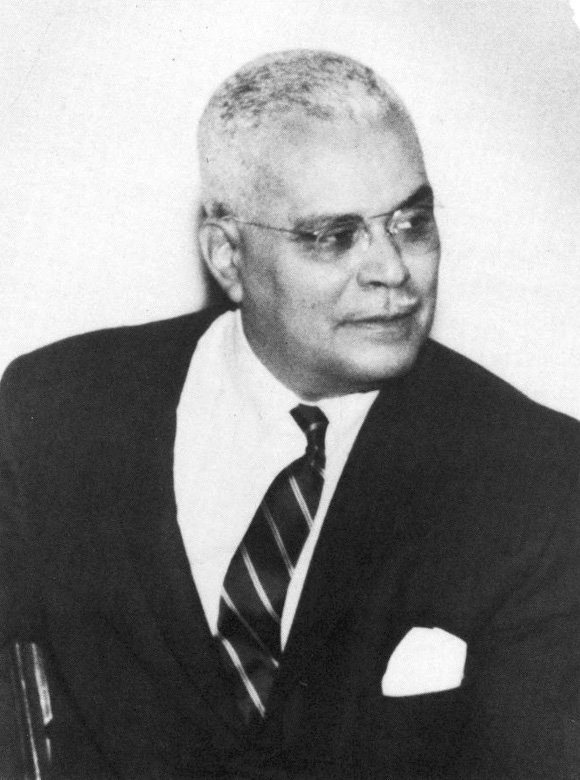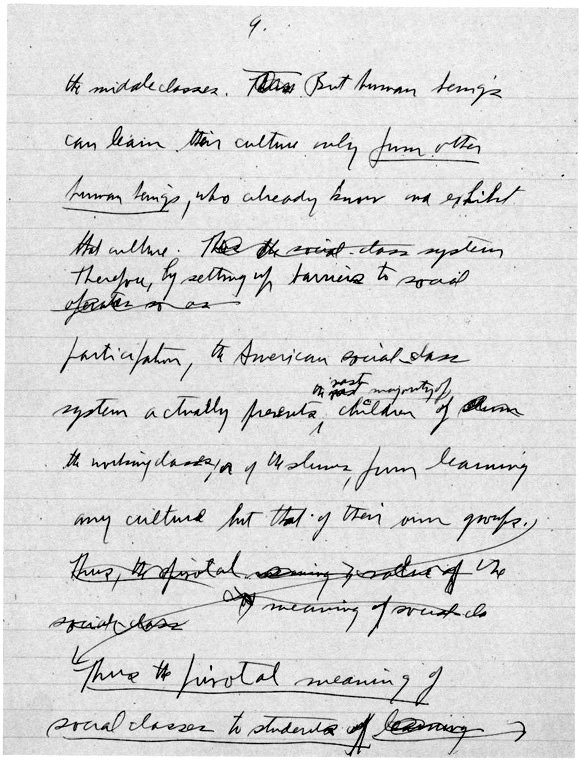Allison Davis (1902-1983): Education
Deeply concerned by his experience, Davis returned to Harvard in 1931 and began graduate studies in social anthropology. Under the direction of W. Lloyd Warner, he embarked on an extensive study of class and race in the deep South. With Burleigh and Mary Gardner, Davis conducted field research in Natchez, Mississippi, concluding that Southern society consisted of a ridgidly maintained color-caste system, each caste, the black and the white, having within it a stratified system of social classes. Broadening this work in collaboration with John Dollard of Yale, Davis prepared a comparative study of the effects of the color-caste system on the development of personality among black adolescents in Natchez and New Orleans. The two pathbreaking books produced by this research, Children of Bondage (1940) and Deep South (1941), were notable not only for their use of anthropological field methods but for their sobering portrait of the economic and racial order in America.
Accompanying Lloyd Warner from Harvard to the University of Chicago, Davis completed his PhD in anthropology in 1942. He accepted a position on the faculty of the Department of Education and Committee on Human Development, where he joined an innovative group of social scientists that included Ralph W. Tyler and Robert J. Havighurst.
With Havighurst, Davis studied infant and child rearing in white and black families in Chicago. He also initiated a major study of standardized intelligence tests being used widely in elementary school systems. In his Inglis Lecture at Harvard, Social-Class Infuences upon Learning (1948), Davis argued that middle-class biases in IQ tests unfairly stigmatized lower-class children . Three years later, along with Kenneth Eells, Havighurst, Tyler, and other colleagues, Davis published Intelligence and Cultural Differences (1951), a detailed analysis of class-based student responses to culturally weighted questions found on ten mass intelligence tests.
As a social anthropologist and psychologist, Davis pursued research on a wide range of problems in learning and personality: studies of relationships between academic performance and child development, attitudes and motivations of children from different social groups, and patterns of adolescent and young adult achievement. Davis's last book, Leadership, Love, and Aggression (1983) applied his fundamental conclusions about class and caste to profiles of the individual development of four prominent black leaders.
Davis drew satisfaction from the successful research he and his colleagues conducted at the University, particularly their challenge of biased intelligence testing. "This study had the most practical effect of any of my work," Davis recalled later. "It led to the abolition of the use of intelligence tests in New York, Chicago, Detroit, San Francisco, and other cities. This was one time I got what I wanted: a direct effect on society from social science research."

An important figure in psychology and social anthropology for more than forty years, Davis was the first Fellow of the American Academy of Arts and Sciences elected in the field of education

Written with Robert Havighurst, this paper was one of a series arguing that "the American social class system actually prevents the vast majority of children of the working classes, or of the slums, from learning any culture but that of their own groups."
